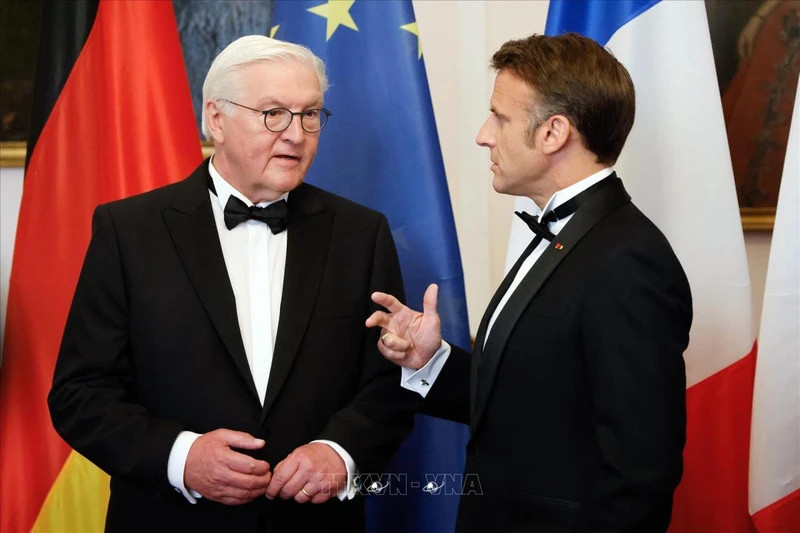President Macron’s visit takes place in the context of Germany celebrating the 75th anniversary of Germany’s post-World War II Constitution. Although President Macron regularly visits Berlin, this trip is the first state visit by a French head of state to Germany in 24 years since the visit by former President Jacques Chirac in 2000.
As the two largest economies in the EU, Germany and France have long been considered the driving forces of European integration, although there are still differences in policies and some issues between the two countries. President Macron and German Chancellor Olaf Scholz have very different leadership styles and have publicly clashed on issues from defence to nuclear energy. However, the two leaders have recently reached compromises on many areas, from fiscal reform to market subsidies, allowing the EU to strike deals and put on a more united front.
In recent times, France and Germany have disagreed on a number of issues, from the bloc’s defence strategy to its response to the energy crisis, and even financial policy. This visit to Germany by the French leader comes after a few months of tensions between Macron and Scholz on a dispute over the best way to support Ukraine in its conflict with Russia.
Despite their differences, Olaf Scholz recently said that he and Macron had a “very good personal relationship” demonstrated by their frequent consultations. "The strength of the cooperation comes particularly from the fact that we do this even when both countries have different opinions on individual issues," Scholz said. Mujtaba Rahman, managing director for Europe at the Eurasia Group think tank said the visit is "an attempt at the highest political level to demonstrate that the relationship is working". However, Rahman still believes that there are still fundamental gaps on major questions looming over the EU.
During President Macron's visit, in addition to attending commemorative events marking the birth of the post-war German state in Berlin, the two leaders also visited the cities of Dresden and Muenster in western Germany and locations where the two countries cooperate on technological innovation or security. However, the most notable programme is the intergovernmental meeting, which is considered a great opportunity for the two sides to seek consensus on defence capacity and competitiveness.
One of the gaps facing Europe today is defence capabilities. As a country with nuclear weapons, France pushes Europe to be more self-reliant on defence issues, disagreeing with Germany's decision to buy most of the US equipment to create an "air defence shield" according to the European Sky Shield initiative. Meanwhile, Germany is adamant that there is no more reliable alternative than using American weapons and that the EU has no time to wait for the bloc's defence industry to be better prepared against threats.
The strength of the French-German relationship is very important for Europe. Along with that, the leaders of the two countries are also trying to find common ground on the EU agenda for the next five years, in view of the expected strong showing for the far-right in the EP elections from June 6 to June 9.
The French President's state visit to Germany is seen as a test for the relationship between Europe's two leading powers. Taking place before the European Parliament elections, the visit shows the efforts of the two countries to find consensus on issues important to the stability and development of the EU.
















